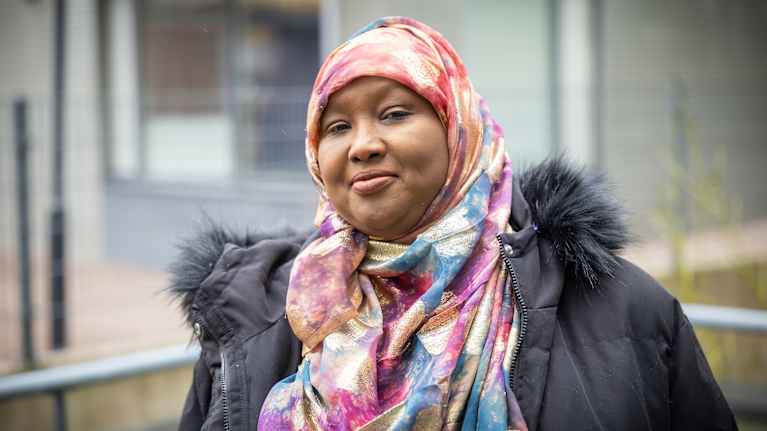Radio | News week in plain Finnish | Sunday 16.2.2025
Somali mothers’ employment
Somali women may find it difficult to enter the workforce in Finland. There are many reasons for this.
A new study was published this week in which Somali women themselves tell us what makes it difficult to enter the workforce.
Now we will tell you more about it.
Education and language skills
E2 The study has examined Somali women’s views on their everyday life and working life in Finland. The study interviewed 20 Somali women, all of whom are also mothers.
Somali mothers say that many things make it difficult to transition into working life.
It is difficult to find a job if you have not attended school and if you do not know Finnish well enough. Finnish prejudices, discrimination and racism also make it difficult to find a job.
A mother’s workplace is home
Somali culture also makes it difficult for Somali mothers to enter the workforce.
Somali culture values motherhood and a large family. Taking care of children at home is considered more important than a mother’s work or studies.
When there are many children in a family, a mother can be stuck at home for a long time. Finding a job after many years of being a stay-at-home mother can be very difficult - especially if you don’t have language skills and education.
Second-generation Somali mothers
However, the role of women in Somali families may be changing.
Second-generation Somali mothers were born and raised in Finland. They speak Finnish and have attended school here. Therefore, it is easier for these mothers to enter the workforce.
In second-generation Somali families, mothers’ employment is also made easier by the fact that in these families, fathers often help with childcare and housework.
Repetition
In Uutisviik, we reported on a new study in which Somali mothers talk about their everyday lives in Finland.
Somali mothers say that poor language skills, lack of education and Finnish prejudices make it difficult to find work.
Somali culture, where a mother’s most important task is to take care of the children at home, also makes it difficult to enter the workforce.
It is easier for second-generation Somali mothers to find work because they know Finnish and have attended school here.
In these families, fathers also often participate in childcare and housework.
This was Uutisviikko in plain Finnish. See you again next week!

